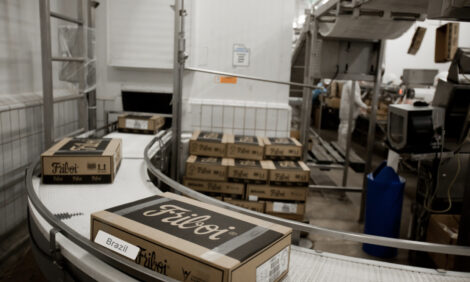



Carbon Tax will Increase Farm Costs by A$3.2 billion
AUSTRALIA - With two days remaining until the carbon tax comes into effect, the National Farmers’ Federation (NFF) is continuing its call for the Government to do more to stop the costs of the tax being passed on to the nation’s farmers.“There is absolutely no doubt that the cost of the carbon tax will be felt by Australian farmers, and the NFF remains ardently opposed to the tax for this reason. In fact, we remain opposed to any tax that makes our farmers less competitive on domestic and international markets,” NFF President Jock Laurie said.
“As the result of extensive lobbying by the NFF over many years, we have been able to secure the exclusion of agricultural emissions from the carbon tax.
“But this certainly does not mean that farmers will be exempt from the costs. High input costs such as electricity and fertiliser are already putting considerable pressure on the farm bottom line, and these costs are set to rise under the carbon tax. From 1 July, farmers will face an increase in costs and a reduction in prices as the carbon tax takes effect; costs and cuts that are totally outside of our control.
“Independent research by the Australian Farm Institute found that farmers will be slugged with additional costs under the tax due to higher electricity costs and the likely pass-through of costs from the processing sector.
“These findings were verified by research from the Government’s own Australian Bureau of Agricultural and Resource Economics and Sciences (ABARES) which found that farmers, particularly dairy farmers, will face additional costs under the tax.
“And just yesterday we saw research from business analysts IBIS World that the carbon tax will increase farm costs by A$3.2 billion in the first year, with a greater increase the following year due to the introduction of heavy vehicle fuel. The forecast also shows that revenue for the agricultural sector will decrease by 6.4 per cent in the first year alone.
“Those who say that farmers will not be impacted by the carbon tax need only look at these three pieces of research: all of which show very clearly that agricultural costs are going up. The bottom line is this: Australian farmers simply cannot afford to absorb these costs into their farm businesses.
“Just last week the Prime Minister noted that Australia is a very efficient agricultural producer. We are because we have to be in order to compete in the global marketplace. But the additional costs that farmers will wear from the carbon tax will make us less efficient and, and a result, less competitive.
“We urge the Prime Minister to do more to stop this carbon tax impacting on our farm businesses,” Mr Laurie said.









